Posts by worldrelief
All My Hope: A Refugee Story
Long Distance Love
On the morning of February 17th, Rafia woke up and prepared a feast for the arrival of her husband, Abdinasir. But when an unprecedented snowstorm hit the Mid-south, Abdinasir’s flight was canceled and he got stuck in Chicago. Rafia, however, was undeterred.
The next morning, she woke up and cooked another welcome-home meal for her long-awaited husband. But again, for the second time, his flight was canceled.
For five years, Rafia and Abdinasir had communicated only by telephone calls. The two met as refugees at a camp in Kenya after fleeing their home country of Ethiopia. When they were married in January 2015, they never imagined that the first years of their marriage would play out like this.
“I loved and married this person, and this person was leaving me,” Abdinasir said through a translator. “It was very hard on me to grasp the reality of it, but in everything, it’s God’s will, so I did not have any control.”
Rafia’s resettlement paperwork had been filed separately from Abdinasir’s before they were married. There was no time to change it between their wedding and her departure 11 months later, so when her visa was approved, she left for the United States, and Abdinasir was left behind.
Rather than spending the honeymoon period together, the couple found themselves in a long-distance relationship. Moreover, when Rafia arrived in the U.S., she discovered she was pregnant.
“Everything kept twirling in my head,” Abdinasir said. “My life was just one surprise after the other. All of the sudden she got there, and she was pregnant.”
A Baby on the Way
From a distance, Abdinasir watched as his wife carried his child and suffered through six months of morning sickness in a completely new country, alone. Her pain was so great that Rafia considered terminating the pregnancy. Thankfully, a new friend from her home country of Ethiopia stepped in to provide support, and Rafia was able to carry the baby to full-term. But her difficulties didn’t stop there.
Due to labor complications, her baby was delivered through a cesarean section.
When she was sent home from the hospital in Atlanta, she was unable to care for herself or the baby because of the strain it would place on her wound. Eventually, she was forced to return to the hospital due to an infection.
This time, another friend took her under his wing, giving her lodging and helping with her newborn when he could. His job as a truck driver, however, often took him away from home for weeks at a time, and Rafia struggled to care for herself and her baby in his absence.
“Even though I laugh about it, sometimes I don’t even want to remember it because it was a very painful experience,” Rafia said.
Meanwhile, Abdinasir was still in a refugee camp on the other side of the ocean. With no news of when his visa would be processed and approved, he could only watch his daughter grow up through a phone screen.
“Her leaving me behind, and me being alone, was hard enough,” he said. “The fact that she was here, pregnant, alone and going through all of that was just another heartache for me. I was not here physically, but I was just feeling all the pain.”
Hope on the Horizon
Slowly, Rafia regained her strength and was able to meet others within her community. Eventually, she moved to Memphis, and with the help of a friend, she contacted World Relief’s local office to start the process of bringing her husband home.
“Life was getting better afterwards, and I am grateful for everything. Even though once upon a time I thought this was just the end of me, that I was just going to rot and die alone,” Rafia said. “But once I got [to Memphis], I told them all my story. They were able to process the visa for Abdinasir, and now he’s here. In many, many, many ways, my survival was because of World Relief.”
In March 2020, four years after their wedding, Abdinasir and Rafia received the news that his visa was being processed. For the first time in a long time, the couple had hope.
“I heard a lot about World Relief, and the fact they would do everything in their power to reunite families,” Abdinasir said. “That gave me the biggest hope that they would do anything and everything to unite us.”
Each time Abdinasir called his family after that, his daughter would ask the same question: “Daddy, when are you coming?” And each time, the truth that he would soon be with them became a little more real. If Abdinasir could have had it his way, he would have grown wings and flown out at that moment.
Instead, he and Rafia drew strength from their faith and maintained hope in God’s plan for their lives, counting down the days to when Abdinasir would arrive and they could begin life as a family. After five years of waiting, a delayed flight in Chicago was nothing for the couple.
Finally Reunited
On the morning of Abdinasir’s arrival, Rafia eagerly awoke. But this time, she didn’t cook a welcome-home meal. Jokingly, she said Abdinasir could eat what was left over from the other two meals she made. Instead, she and her daughter waited patiently at the airport, giddy with excitement.
When Abdinasir finally landed in Memphis his first thought was who should he kiss first — the daughter he was meeting for the first time or the wife he had said goodbye to five years ago? Overwhelmed with emotion, he embraced his wife first then turned to hug his daughter for the very first time.
“It’s my turn now since she’s been through all this hardship all this time alone. I just really want to be the anchor for my family and be the man of the house for everything going forward,” Abdinasir said.
A month into his new life with his wife and daughter, Abdinasir is working hard to learn English and find a job. His prayer is that this is just the start and not the ending. He is filled with hope as he thinks of the future that lies ahead of his family — one that he had never thought possible when he was forced to leave his country so many years ago.
“Coming from all the horror stories and everything else, you come here and you’re a human. You have rights,” he said. “To me, I have left all the troubles and everything right there where I came from. Nothing but the best moving forward, and that’s all my hope.”
Give today and help us welcome and reunite more families like Rafia and Abdinasir. Together, we can build communities of love and welcome that we all feel proud to be a part of.
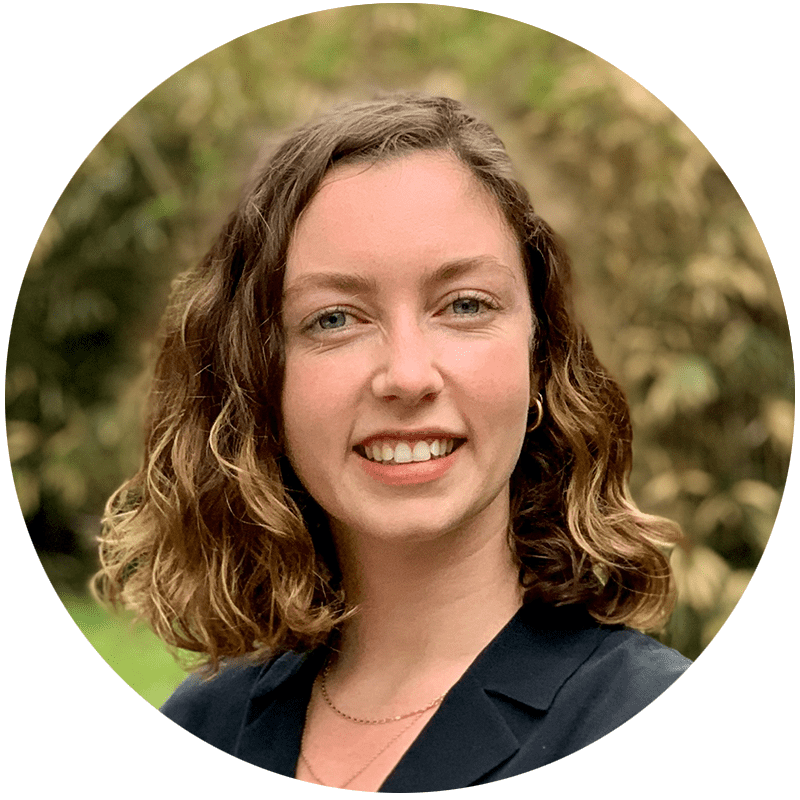
Bailey Clark serves as the Communications Coordinator for World Relief Memphis. With a background in journalism and advertising, she is passionate about storytelling and its power to make a difference.
World Relief Decries Biden Administration’s Failure to Follow Through on its Promise to Set Robust Presidential Determination for Refugee Resettlement in 2021
April 16, 2021
CONTACT:
Lauren Carl
lauren.carl@pinkston.co
(703) 388-6734
BALTIMORE – Today, despite his repeated promises to increase the U.S.’s commitment to resettling refugees, President Biden signed a revised Presidential Determination for Refugee Resettlement (PD), maintaining President Trump’s historically low admissions goal of 15,000. While President Biden’s revised PD does make important and long-awaited changes to regional admissions categories, the decision to keep the refugee cap at an all-time low represents a stunning betrayal of the president’s previous commitment. While, after widespread outcry, the administration indicated that further revisions may be forthcoming, World Relief believes President Biden must set the refugee ceiling at the promised level of 62,500 for the remainder of the fiscal year immediately.
World Relief believes the ceiling that President Biden signed today is short-sighted and an abdication of our values. The world is currently facing the greatest displacement crisis in modern history, with at least 79.5 million people currently forced from their homes. Of these nearly 80 million people, 26 million are refugees, meaning they have fled their countries because they faced persecution and are unable to find safety at home should they return. The need for countries like the U.S. to welcome and care for the most vulnerable of these refugees has never been greater, and yet the U.S. refugee admissions program has been drastically cut. In fact, President Biden has now affirmed a refugee ceiling that is less than one-third of the level set by President Trump in his first days in office — a level that World Relief’s leadership and many other evangelical leaders sharply critiqued at the time.
“We are shocked and disappointed to hear that President Biden has failed to keep his promise to expand the refugee admissions cap. Biden made clear that he would rebuild the U.S. refugee resettlement program that had been devastated by his predecessor; in embracing President Trump’s historically low refugee ceiling, President Biden is betraying his commitment to build back better” said Scott Arbeiter, president of World Relief. “At a time when refugees and immigrants need American leadership more than ever before, President Biden is refusing to take action.”
Restoring the U.S. refugee program was an official priority of the Biden-Harris administration, with President Biden formally proposing to raise the refugee admissions goal for the remainder of the 2021 fiscal year (FY21) to 62,500 – a move that would have paved the way for a refugee admissions goal of 125,000 during the next fiscal year (FY22). With President Biden’s decision to keep Trump’s refugee cap in place, the future of refugee admissions in the years to come is now uncertain.
The new commitment to leave the presidential determination at 15,000 came with new regional categories that replaced Trump’s four admissions categories, which has led more than 700 refugees’ flights to be cancelled in recent weeks. The new categories are as follows::
- Africa – 7,000
- East Asia – 1,000
- Europe and Central Asia – 1,500
- Latin America/Caribbean – 3,000
- Near East/South Asia – 1,500
- Unallocated Reserve – 1,000
“We are glad that President Trump’s discriminatory admissions categories have been rescinded, but the fact that the refugee ceiling remains unchanged at 15,000 is a stunning disappointment, and we’re not going to celebrate further vague promises that the ceiling will be reconsidered in the future. The president has effectively abandoned his commitment to help refugees around the world by keeping the refugee ceiling at the lowest levels in U.S. history. He has backtracked on the promise he made in February to raise the refugee ceiling to 62,500, continuing Trump’s draconian policies that shut the door on those fleeing persecution. The effects have been felt by some of the most vulnerable people around the world. In order to truly strengthen the refugee program and reach the eventual goal of resettling 125,000 refugees, the president must do more to restore U.S. leadership in refugee protection, especially when we are facing the world’s worst refugee crisis since World War II,” said Jenny Yang, senior vice president of advocacy and policy for World Relief.
World Relief asks the Biden administration to rebuild and strengthen the resettlement program to meet the promised refugee admissions goal of 62,500. Congress should support robust federal funding for refugee protection and resettlement, as well as proactive legislation, such as the GRACE Act, which would set a minimum refugee admissions goal of 125,000 and expand congressional oversight over the operations of the resettlement program.
“The refugee resettlement ceiling should be raised immediately, so our nation can welcome those we have already vetted. Refugee resettlement is a process that is entirely separate from the challenges at the U.S.-Mexico border, and the situation there should not prevent the administration from keeping its promise to refugees who have already been vetted overseas,” said Tim Breene, CEO of World Relief.
To learn more about refugee resettlement and to ask your congressional representative to consider legislation on it, visit https://worldrelief.org/advocate/
To download a PDF version of this press release, click here.
About World Relief
World Relief is a global Christian humanitarian organization that brings sustainable solutions to the world’s greatest problems – disasters, extreme poverty, violence, oppression, and mass displacement. For over 75 years, we’ve partnered with churches and community leaders in the U.S. and abroad to bring hope, healing and transformation to the most vulnerable.
Learn more at worldrelief.org.
###
Get to Know Our Staff: Haiti
In 2021, we’re giving you the inside scoop on the work World Relief is doing in communities around the world through a new series called, Get to Know Our Staff.
Today, we’re excited to introduce you to Esther Pyram, World Relief Haiti’s Integral Mission and Church Empowerment Zone Manager. Esther is a writer, a wife, a sister and a friend. Her prayerful spirit and joyful work ethic are contagious, and today she’s sharing more about her role at World Relief and the transformation she’s personally experienced while leading alongside others in Haiti.
What is your name?
My name is Esther Phtama Pyram Louissaint, a Christian believer. I am a wife, a sister, a friend and a beloved daughter.
What is your role at World Relief?
I have been with World Relief since February 2016. I joined as a field coordinator. Currently, I work as the Integral Mission and Church Empowerment Zone Manager.
What is your favorite thing about your job?
There is nothing more exciting than doing what you know you were called to do. It is a complete joy to serve, to participate in this holistic transformation we are looking for in our community. Therefore, in the past five years, I have always considered myself a servitor rather than an employee.
Can you share some stories that excite you?
I had the privilege of witnessing churches’ growth and seeing them proudly standing up for the most vulnerable. I saw children going to school for the first time in communities where there was no school before and where State Institutions are absent. I have observed church leaders contributing generously and with inexplicable joy to organize community weddings regardless of religious or denominational backgrounds. I saw widows’ homes restored, gardens planted, and crops at their feet to face the new season. I have seen life blooming, and hope being restored for many brothers and sisters.
Yet, the most wonderful part of it all is to witness my own transformation through this process. I have become stronger, more confident, empowered and impacted. I am working with more tact, joy, love and a constant quest for excellence in all areas of my life.
How have you grown in this role?
My relationships with God, with myself, with my family and others have been transformed beyond belief. Areas of my life which I struggled with in the past have been restored, including my finances, my ministries and my dreams.
My increased mental strength allows me to face nasty critics with steadiness and an unwavering attitude. Such critics can no longer put me down. In short, I know who I am: a loved, gifted and blessed girl, and all the assets in the world cannot compensate for such newly built confidence in myself and in Our Loving Father.
What are your hopes for the communities where you live and work?
Like World Relief, I want to see local churches empowered to serve the most vulnerable. I diligently pray, and I long to see women in our communities, and especially those in our local churches, rise to their talents, gifts and abilities so they may answer their divine call and enter their destiny.
I want to see our youth plan their future with more hope, certainty and dignity. I want to see my community rise and move forward on the road to progress, success and development. I want to see families becoming stronger by the days and despite the challenges. I long to see respectable citizens taking the lead in their communities in this new generation. In short, I want to continue witnessing blooming life and daily revival of hope for all.
What do you like to do when you’re not working?
I work with a wonderful, competent, and dynamic team under the supervision of Athanase Ndayisaba (World Relief Haiti Country Director). In my spare time I read, sing, pray and write beautiful novels that one day may be published. I inspire others to stay motivated and confident.
It was a pleasure to share a little of me with you.
Do you want to create holistic transformation in communities around the globe? World Relief is growing our team to meet the increased needs of our world, and we’re looking for people like you to join us.

Rachel Clair serves as a Content Writer at World Relief. With a background in creative writing and children’s ministry, she is passionate about helping people of all ages think creatively and love God with their hearts, souls and minds.
The Biden Administration Has Delayed Accepting More Refugees Despite Campaign Promise
NPR All Things Considered
NPR’s Mary Louise Kelly talks with World Relief’s Jenny Yang about the Biden administration’s delays in accepting more refugees into the United States, despite campaign promises to increase numbers.
The Secret Behind Her Smile
Never Again
April 7th marks the beginning of 100 days of commemoration of the 1994 Genocide against the Tutsi in Rwanda. This is a special time to remember more than a million people that were murdered because of the way they were created. It is a time to grieve but also to unite and rebuild a new generation and a new Rwanda that has a vision of moving forward towards development. The Genocide against the Tutsi was a horrible tragedy no one wishes to see happen again, so we commit ourselves to never let it happen again in our country or elsewhere and say ‘Genocide never again’.
While it is often hard to look back on the tragic events in our past, I see only hope when I look around at the Rwanda of today. All around me I see people and communities that have been reborn and made new. And in my work at World Relief, I am happy to get to witness and share so many of these stories of hope. Stories of women like Tuyisenge Valerie, a 43-year-old wife and mother to three kids.
Valerie’s Story
I first met Valerie while visiting Nyamasheke Church Empowerment Zone. Her genuine and beautiful smile caught my attention. Even though I already knew her as one of our project beneficiaries and have heard a lot about how strong and influential she is in the community, I always wanted to know more about the person behind her smile and courage. I asked her if she could share her story and she said “yes” with her beautiful smile.
“My life story always changes people’s hearts so if you want to share it with the world I am happy with it, as long as it will help others and improve the way they envision their future. This is my calling and passion, to touch as many people’s lives as possible with my story,” she said.
Valerie is a survivor of the 1994 Genocide against the Tutsi, when her parents and all 12 of her siblings were murdered. During this horrific tragedy, she was also sexually assaulted. In the wake of these events, Valerie was left feeling helpless and lonely. She faced extreme trauma and was put under medication to ease her pain and tension. She always felt lonely, even though she was being taken care of by the government through the 1994 Genocide Survival Fund, which provides access to money to support her and takes care of her medical needs.
Despite her trauma, Valerie is friendly and loves supporting others in need. She used to provide counsel to and advocate for those who were hurting, especially other survivors. This prompted her to be elected as the head of an organization named ‘IBUKA’, which connects various groups who aid survivors of the 1994 Genocide against Tutsi in her village. This leadership also paved the way for her to join The National Women Council which is a group responsible for advocacy, capacity building and social mobilization through women empowerment projects, and which fights against domestic violence and advances women’s rights.
In August 1996, Valerie got married to Celestin Kitabonindege. A year later they were blessed with their firstborn and later had four other children together. Unfortunately, the second and fifth born died when they were still infants. After losing their last born in 2006, Celestin wanted to have more children, yet Valerie did not. Celestin became angry and abusive, and eventually, in 2016 he left her for another woman, with whom he had three more children.
Valerie thought that her life was over. She had depended so much on Celestin due to the fact that he had loved her after all she went through after the genocide. And so she became desperate again, for she was left with 3 kids and in a small house. Their life was not easy and she depended only on the money that the survival fund could provide for her.
The Tuzamurane Project
Valerie’s suffering continued until 2019, when World Relief, in partnership with Starbucks, started the Women’s Empowerment, or Tuzamurane project. The project aims to “empower women to thrive through safe relationships, healthy homes, clean drinking water and economic opportunity,” and provides different lessons to help women sustain themselves towards development.
Behavior change for transformation, in addition to hygiene and sanitation, women and child rights, and economic development lessons were among lessons provided.
“The behavior change lesson that pictured a tree among all, saved my life. I realized that I had false beliefs as roots that made my life continue to be miserable. I was focusing only on what had happened to me which made me not have hope for a better future. But the more we went through these lessons, the more my mindset changed. And I started thinking differently looking ahead for a better future,” said Valerie.
Through the Tuzamurane project, Valerie met other women who had been through similar circumstances as she had. She gained friends through social women’s gatherings and began to find the support she needed to heal and speak up for herself. She also joined a savings group, which helped her grow her finances. Eventually, she was able to build two houses, one for her family and another one for rent to earn income. In addition to that, she opened a clothing shop which she still runs today. Valerie says that her life has been completely transformed by the community and the programs she found through Tuzamurane.
“I got my life back ever since World Relief came into my life through the project Tuzamurane,” she said. “I became open and able to face my fears and problems.”
Hope & Healing
Today, Valerie has reached a point in her healing that she now helps other women who have suffered domestic violence and/or other tragedies that have made them suffer. She helps them overcome their pain, fight for their rights and rebuild their lives through economic and career development. She is so grateful for what she acquired which made her draw near to God and thanked Him for having brought World Relief into her area.
Celestin also decided to apologize to Valerie and she forgave him. They got back together last year and are joining hands in building their life together in harmony.
As we remember the 1994 Genocide against the Tutsi, Valerie is ready to help others by giving them hope for a brighter future. As a leader in her sector and village, she will be reaching out to those who face trauma during this time of mourning and seek to uplift them.
When I asked her about the secret behind her smile she said “due to these trainings I received from World Relief, I became new, I learned as well that smiling with happiness is like food and medicine to my soul.” She went on by saying that “people fight and hate each other for nothing! If only they could be aware of how they were loved and created by the same God for a purpose they would unlock their blessings!” Her smile now is genuine and meaningful. It does not hide pain and sorrow anymore for she is healed.
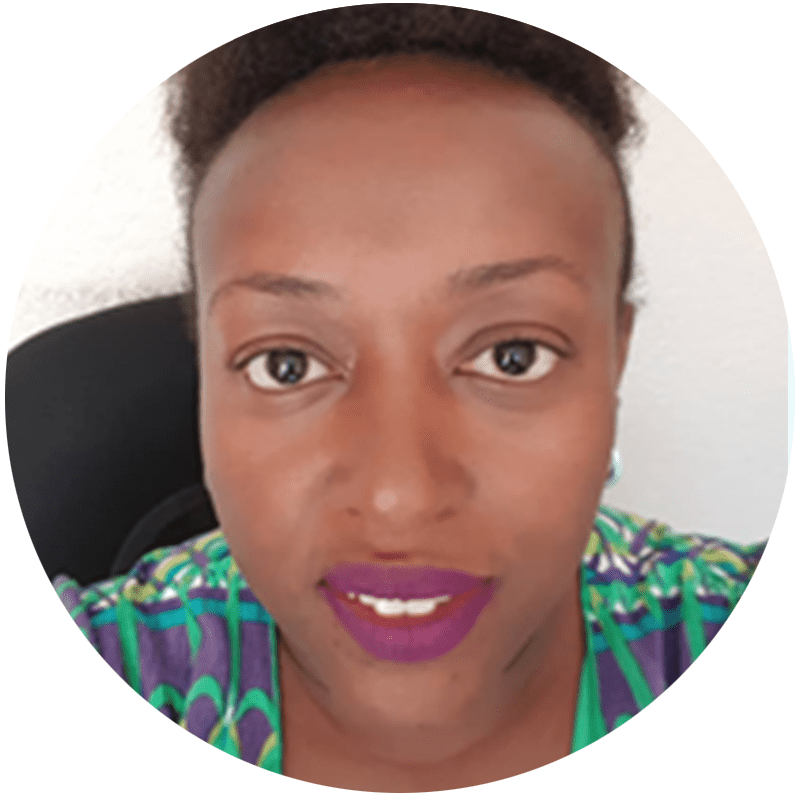
A pioneer in the documentation space, Emily Kankindi is the communications and documentation unit coordinator at World Relief in Rwanda. She started with World Relief in 2005 and has been growing through different stages while pursuing a career in creative communications with a passion to tell the story of impact. Driven by a mission to serve the most vulnerable, Emily is best known for inspiring others to care and serve the needy by using all possible means of communication to promote and call forth positive ramifications of WR interventions in all aspects of life. Her educational background is marketing and travel operations.
Commentary: Offer safe haven to persecuted religious minorities
Baptist Standard
By Jenny Yang, Vice President of Advocacy and Policy
Nations of the world regularly have opened their arms to those fleeing tyrants, terrorists and authoritarian governments. This openness has been a hallmark of the United States, whose response to refugees, especially in the past 40 years, befits the heritage of a nation founded by those fleeing religious persecution.
Since 1980, the United States has admitted more than 3.1 million refugees, many of whom fled persecution because of their faith.
Hope Because
The camelia behind our house started blooming in late January, causing me to wonder, “Does that happen often here in Seattle?” I’m new to the city and haven’t been through all four seasons yet, so I’m not sure. But seeing the blooms on that rainy Sunday morning got me to thinking about seasons.
Late winter is the season that most reminds me to look beyond what I see and think about what’s just out of sight. It is a season of potential.
When I see the tips of daffodils emerging or an early-blooming camelia, I don’t rejoice that spring has come because it hasn’t yet. But these little reminders that the roar of spring will soon unfold captures my imagination and invites me to consider the hope and potential of what’s to come in other areas of my life as well.
Something like this hopeful expectation has infected our team at World Relief. As we think about refugees who have been waiting for so long to be resettled, we have hope at the promise of an increased refugee ceiling. Like a gardener who sharpens tools and pores over seed catalogs in late winter, we are gearing up to welcome weary strangers whose long and halting journey to their new communities will likely resume in the year ahead. We pray for them as they wait. We pray and we hope.
Just on the other side of late winter comes spring — a season full of change.
There’s no need for me to dive into all the change we’ve experienced collectively this past year. I’m sure they’re springing to your mind even as you read this sentence. Instead, I’m wondering about the changes in your own life, your home, your ministry, your job, your health.
In losing the opportunity to meet together in person, I wonder if we’ve also lost the opportunity to share our stories with someone else as well, to turn our personal experiences into shared experiences. Do you miss that as much as I do? Or is that just an extrovert’s perspective?
As I’ve pondered these questions and the new season we are entering, I have found these meditations on change to be very helpful in transitioning to this new year, new season, new administration and new chapter of the pandemic. All of this change has given us a lot to sort through. Yet, at the same time, so many other things are standing still.
In this season of change, we find ourselves hoping for what’s on the horizon while still grieving the reality of what still is — the sickness, division, unresolved issues at our border and any number of unmet longings within our personal lives. It’s a lot to hold.
I’m reminded though, on the heels of Easter Sunday, that even in our waiting and in our grief we can still have hope. No matter what our changing circumstances may hold, we can have hope because God is faithful.
I hope you’ll take a few minutes to watch and listen to the meditation on hope that’s shared below. As you do, I pray you’d become more aware of how God is present in the current season you are in.
We are so grateful for the support you — our partners, our advocates our volunteers — have shown us in the past season, and we look forward to partnering with you in the new season ahead.
*Find more meditations like this one here
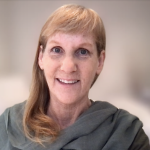
In March, 2020, Kim Hurst relocated to Seattle for her job as a Strategic Partnership Director, just in time to lock down with her husband for Covid19. Even without any face-to-face meetings quite yet, she feels privileged to be serving World Relief’s partners in the beautiful Pacific Northwest.
Systems Change in Seattle
As World Relief Seattle’s Executive Director and an immigrant myself, I have seen the razor-thin line between security and insecurity that many immigrants experience. Never was this more clear to me than this year, as our office rallied to serve those hardest hit by the COVID-19 pandemic.
As the pandemic wore on last year, we received many calls for help from our community — for help with navigating unemployment, for help finding work, for help with rent assistance and for help with the food insecurity many were facing.
World Relief Seattle’s Resiliency Programs Manager, Tahmina Martelly, jumped into action, along with Santa Pradhan, our Employment Manager. Both of them being women of color and women who have faced the refugee journey, they were hearing the need both at work and at home in their communities.
Without delay, the Employment Team united to help over 98 folks access unemployment benefits and many others get re-employed. The Resiliency team addressed the food insecurity issue in partnership with Hillside Church, where our Community Garden is located. Tahmina began to put the word out and people from all across the community began to show up with food. We formed a formal partnership with Northwest Harvest and began a weekly food distribution site— serving more than 800 families a week with food boxes that lasted 3-5 days.
One day, I went to check out the operations, first-hand. And it struck me that most of the folks in the cars were from our black, brown and immigrant communities. After 30 years of working in marginalized communities, I realized that they were the very same people that were in these lines whenever crisis hits. It disturbed me so much that I returned to my car crying and wondering how we could change the system, so that the next time a crisis hits, our communities could go to the store and buy their own food, not wait in lines at distribution sites.
As a Leadership Team, we decided that to change the system we needed to invest in two powerful and proven strategies to move people out of poverty— economic and educational empowerment. So this year, we’re planning to launch several “system change initiatives”. They will include a commercial/teaching kitchen, an Immigrant Entrepreneurship Academy for emerging businesses and support services for existing immigrant businesses. We are also going to continue investing in immigrant and refugee youth — making sure the curriculum in our Summer Academy is academically rigorous, provides academic support and prepares them for a bright future.
We might not be able to change the whole world, but this International Women’s Day and for Women’s History Month, the amazing women on our team, and I, hope to make a positive change in our small piece of the world!

Chitra Hanstad began as Executive Director at World Relief Seattle in January 2017. Prior to this, she spent time in India consulting for Justice Ventures International (an anti-trafficking organization) on strategic planning and fund development and as a Philanthropic Advisor for the Seattle Foundation. While her career started in corporate advertising, public relations and media relations, she has spent most of the last twenty years working for local and international non-profits. Chitra has a passion for seeing at-risk communities thrive. She has served on many boards including Covenant World Relief & Urban Impact, and volunteers with The Stability Network.
Breaking Barriers in Burundi: Women Who Make It Happen
Leocadie is a leader in so many ways. She’s a farmer, a wife, a mother to eight children and a grandmother of 20 — two of whom, she proudly says, are a set of twins who were born this past February.
For most of her life, though, Leocadie says women weren’t welcomed into leadership roles within the community nor were they empowered to be a part of making decisions for their families. But that began to change in 2010 when World Relief launched a savings program in her community and invited women, like her, to lead.
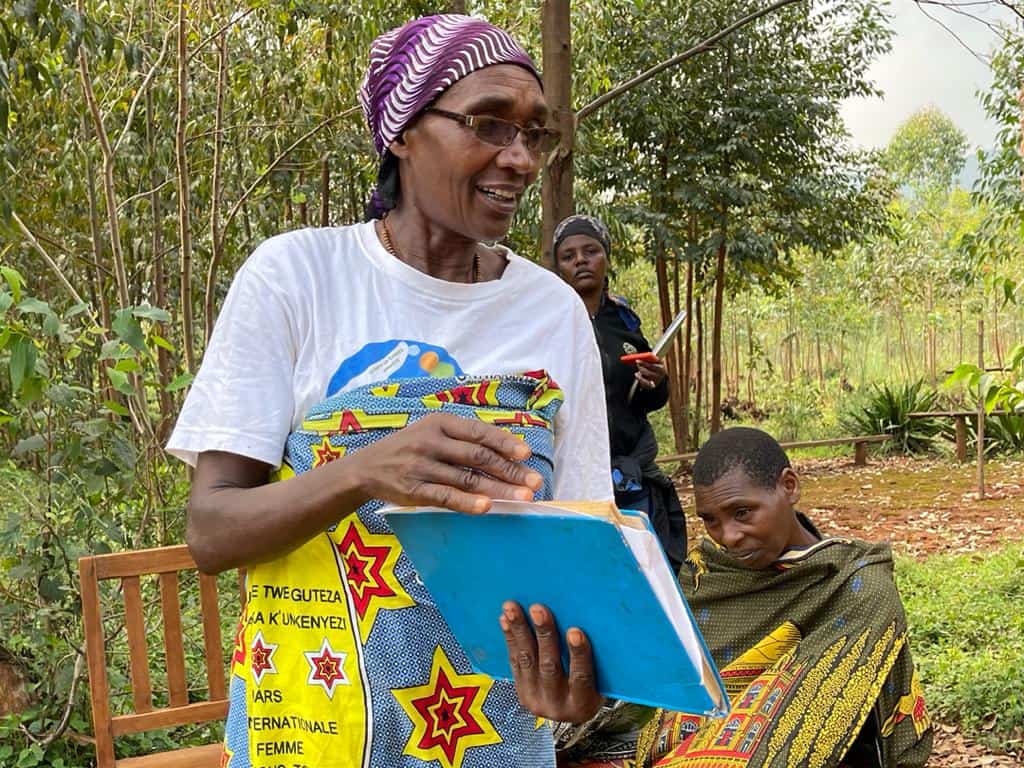
“When our group was formed I was elected to lead them. I took it as a privilege,” she said. “I was inspired by the interventions that [World Relief] was conducting because I saw them as a way to help others in my community who were going through many issues within their families.”
Over the next 11 years, Leocadie continued to grow as a leader. When World Relief launched agricultural programming in her community, she stepped up to lead in this area as well. And while the economic advancements she and her group have made by implementing new agricultural techniques and better financial management, the transformation her community has experienced in the area of gender equality is equally as remarkable.
“In the past, women were supposed to stay home and take care of the family, with their time mostly spent in the kitchen,” she said. “Now we participate in all decisions, at the colline (community) level. We have female leaders, savings group female leaders. I am very happy to see how I am respected by women and men. They listen to me because they see the impact of what I am doing.”
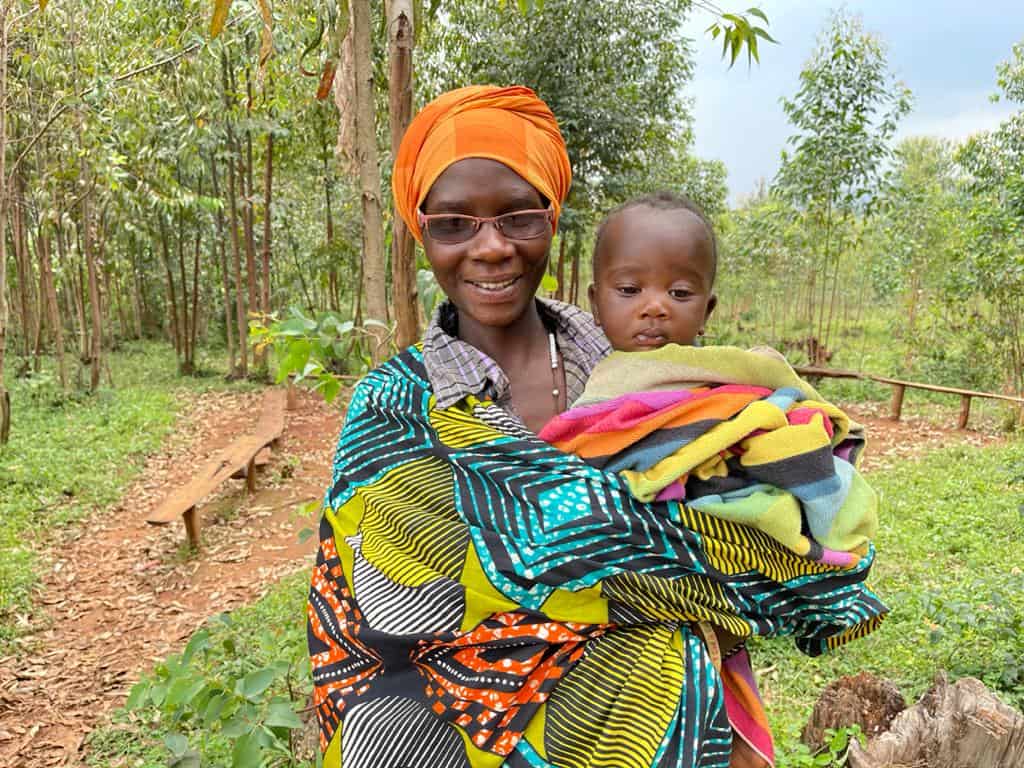
Leocadie’s leadership is rippling throughout her community. She’s created a sense of connectedness and support for women in her group like Jeane, the youngest member of the group, who says that learning from Leocadie has helped her grow as a mother and has improved her marriage.
“I am very happy to be part of this group,” Jeane said. “I am one of the youngest with two little children. I get an opportunity to be with wise women, grannies. Group members opened the door for me to learn from their marriages. As a result, I know how to be a better woman, and my husband and I discuss our feelings and make decisions together. ”
And it’s not just the women who are experiencing transformation. Pasteur Sinzumusi, the lone man in the group of 24 women, has increased his income, improved his marriage and totally shifted the way he views women thanks to Leocadie’s leadership.
Pasteur initially joined the group because he noticed the women were experiencing a better crop yield than he was.
“Before joining them, I had no savings at all,” he said. “I was farming in old fashion (outdated techniques), which did not have a good harvest. The reason I joined is because I saw their lives were different from mine. They had new skills and knowledge in farming, so I approached them.”
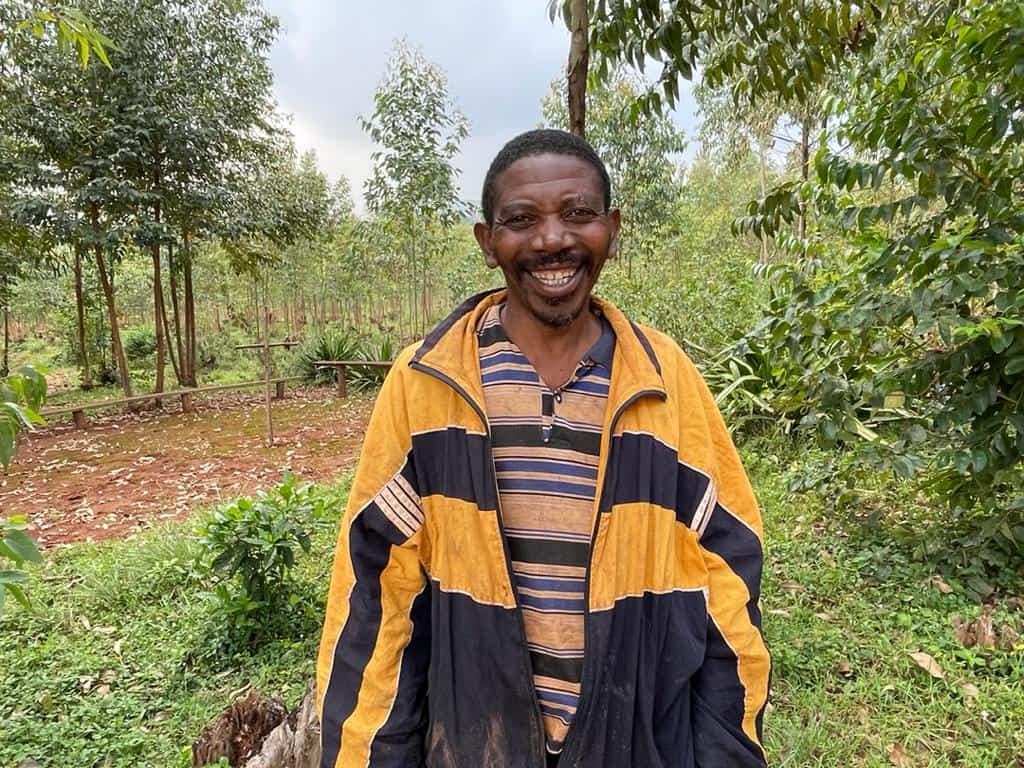
Today, Pasteur says his plot of land looks amazing, his income has increased and he can now easily afford to buy necessities like soap and send his kids to school. He attributes much of his success to the leadership of Leocadie and the community of women he has learned alongside.
“I respect my leader. She is just amazing. She does her duties well. Through her leadership, my way of viewing women has changed. Before I thought they couldn’t lead, but now I can testify that women are capable of leading. And this made me respect my wife and let her step into exercising her gifts.”
Leocadie is grateful for all the ways she’s seen her community transform. Women are more involved in community associations; marriages are more egalitarian in their decision-making; women participate in household management and can contribute financially.
She is hopeful to see her group continue to improve their farming and embrace new skills.
As we celebrate the accomplishments of women and the barriers they are breaking down, we echo the words of Pasteur when he said: “Women can do things as men. I invite all men to come to see how our association is well organized and well managed by female leadership. They will learn that women are good and great leaders.”
Millions of women, just like Leocadie, are choosing to challenge the limits placed on them and break through the barriers around them. Their daughters, granddaughters and great-granddaughters will know a world where women are respected, valued and lead. Will you join them in building a better world by giving today?
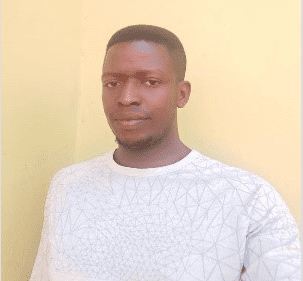
Ezechiel Hatungimana born and raised in Burundi with a passion of seeing his country developed holistically. Prior to World Relief, Ezechiel has served in a local organization aiming to empower the lives of people holistically, working directly with churches. While he is still completing his bachelor’s degree in Business Administration, He joined WR 2018 and he supervises a team of 20 people who equip 500 local churches. Ezechiel is married and blessed with two children. Ezechiel and his Family worship at PTI Church where he serves as a preacher.

Rachel Clair serves as a Content Writer at World Relief. With a background in creative writing and children’s ministry, she is passionate about helping people of all ages think creatively and love God with their hearts, souls and minds.
Crisis in Sudan: Responding to Violence and Empowering Women
Civil Unrest in Geneina
On January 16, 2021, civil unrest was reported in the Geneina area in West Darfur as a result of violence between Masalit and Arab tribesmen — groups that have had a long history of conflict over land and water resources. Tensions have continued to grow in the days since this recent bout of violence, resulting in:
- About 183,000 displaced people in the Darfur region, with an additional 3,500 who crossed the border into Chad*
- At least 470 deaths and 300 injuries
- An estimated 149,000 displaced people in West Darfur alone*
In crises such as these, women and girls are especially vulnerable. While women and girls in Sudan already face challenges due to their gender, these challenges become more pronounced when they are living in displacement camps as a result of violence in their communities.
The United Nations High Commissioner for Refugees (UNHCR) states that “sexual and gender-based violence (SGBV), including domestic violence and alcohol abuse, increases in such circumstances. Women and girls may be attacked as they look for firewood or water outside the camp”, and “As financial resources are depleted, adolescent girls are married off at increasingly younger ages”.
A Trusted Partner
Over the last several years, World Relief Sudan has become a trusted agency among the Sudanese people, other NGOs and the Sudanese government. This trust enabled our team to quickly respond to the latest humanitarian crisis in partnership with UN agencies and other INGOs.
World Relief Sudan was recently awarded $900,000 in emergency funds from the Sudan Humanitarian Fund (through the UNDP) to provide immediate humanitarian assistance.
Our emergency response thus far has included provision of potable water and emergency latrines, hygiene promotion training, mobile health services for pregnant women and children under five and distribution of basic non-food items for 39,000 internally displaced persons.
Unique Challenges for Women
World Relief Sudan is well aware of the specific challenges which women and girls face in such environments and is taking measures to prevent violence, protect vulnerable beneficiaries and support the agency and voices of women in their communities.
Among the many projects to provide for the immediate needs of displaced people, the emergency response team is working to ensure that all people in displacement camps have a clean water source less than 1km from their temporary dwelling.
These water points are fenced, to reduce the possibility of violence around these areas, as violence towards women is common when women travel outside of their villages to collect water. By reducing the distance to water points and fencing them in, women are at far lower risk of being attacked.
In addition, WASH (water, sanitation and hygiene) committees are being formed — and are composed of at least 40% women — to monitor the use and maintenance of said water points.
WASH committees are important because they ensure regular maintenance and orderly use of the access points. When women are on these committees, they can better emphasize the protection of women and children at water access points.
What’s more, because these committees are made up of local residents, they will continue in their work long after World Relief has left the area.
Challenging for Change
As the conflict in West Darfur continues, women, girls, men and boys are all receiving effective emergency services from World Relief Sudan to mitigate their present challenges.
These services are provided with special emphasis on gender protection and representation, challenging communities to change the way they engage with one another, and empowering women to take leadership roles in their communities.
*Update: As of May 12, 2021, the number of people displaced by the current conflict has increased:
- 151,400 IDPs in Geneina (West Darfur) from Jan-April 2021
- 65,000 newly displaced IDPs in April alone
- Total of 237,000 people displaced by conflict in the Darfur region in the first 4 months of 2021 – which is more than 4 times those displaced by conflict in all of 2020.

Lydia Dawson serves as World Relief’s Humanitarian and Disaster Response Unit Program Officer in Sudan, and in disaster response worldwide. Prior to joining World Relief, Lydia worked in homeless services and community development in Oregon and California. She is passionate about equity and honor for underrepresented groups, both locally and internationally.










